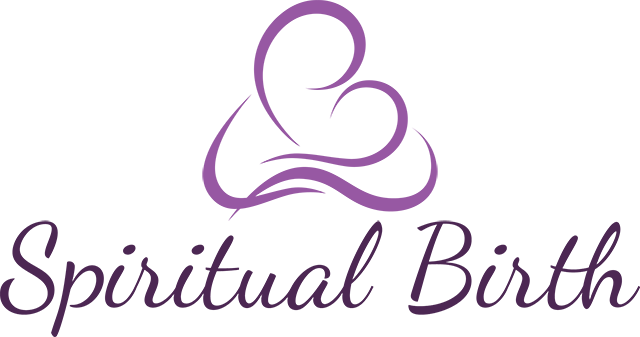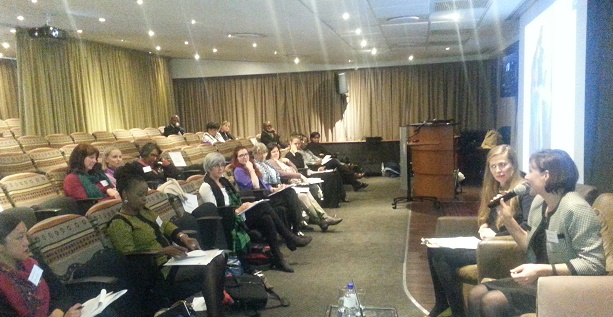I have just returned home from attending the first Human Rights in Childbirth Summit 2015 on the continent of Africa, held in Johannesburg, South Africa. Participants included delegates, doctors, midwives, lawyers, researchers from Amnesty International, United Kingdom, Tanzania, Zambia, Nigeria, Kenya, Ghana, Sierra Leone and Southern Africa. We discussed many issues pertaining to Human Rights in Childbirth and although I would love to cover them all here, will stick to the right to choose a Vaginal Birth After Caesarian Section (VBAC) and/or Homebirth After Caesarian (HBAC) subject for this article.
Human rights in childbirth
There are six fundamental Human Rights which apply to childbirth including vaginal birth after caesarian, or VBAC, as it is also known. These are:
1. The Right to Informed Consent
2. The Right to Refuse Medical Treatment
3. The Right to Equal Treatment
4. The Right To Health
5. The Right To Privacy
6. The Right To Life
1. The Right to Informed Consent : Whether a mother is educated or not, she has the right to know exactly what the risks or benefits might be of a given intervention, such as caesarian section. Many women are not told about the possible consequences of a repeat caesarian section. If a mother can give birth naturally, it is safer and better for her health in the long term. Protocol dictated health care violates the right to informed consent and a VBAC mother deserves the right to individual assessment and responsive care.
2. The Right to Refuse Medical Treatment : A mother has the right to refuse medical treatment, she has the right to walk out of a hospital at any time, the right to say no as well as yes to medical recommendations. No-one should perform an intervention without asking the mother first. A mother has the right to ask for more information, the right to delay an intervention, as her body belongs to her and ultimately the final decision is hers to make, based on bodily autonomy.
3. The Right to Equal Treatment : Every woman has the right to equal treatment in maternity care and the right to not be discriminated against on account of colour, race, age, literacy, education level, or the number of children they have had. When women are not listened to or care is not given in equal measure according to individual needs, such as, a pregnant woman who desires a VBAC, this is discriminatory.
4. The Right To Health : This means that in maternity care, every woman deserves access to a safe environment with a skilled birth attendant, access to emergency services and medicines. The right to health care is exacerbated by poverty, poor public road system, lack of transport, malnutrition, among other factors. But for VBAC it is exacerbated when a woman is not provided with the requirements for a safe VBAC in a hospital environment by ensuring privacy in a warm dimly lit room with a continuous caregiver of her choice, minimal interventions, limited vaginal examination (ie, not every 2 hours), or individual assessment of each mother’s needs.
5. The Right to Privacy : The European Court of Human Rights has stated that it is the right of the individual to choose to become a parent and therefore the same right is extended to choosing where to give birth, as “the circumstances of giving birth incontestably form part of one’s private life”. The medical professions should not enforce monopoly and make women’s choices illegitimate, thus driving them underground. The delay in medical care when a woman tranfers in labour to hospital, for instance, could be seen as an obstruction of justice, and women deserve the right to be respected and supported by the health care facility, thus optimizing the health of mother and baby.
6. The Right to Life : Poverty and lack of infra-structure put women’s lives at risk especially in developing countries. In South Africa, many women are afraid to access public health clinics for fear they will be victimized and not treated respectfully. This puts these mothers and babies at risk. The maternal death rate in South Africa is rising at 625 maternal deaths per 100 000 women, according to statistics in South Africa. This means we are not meeting women’s needs for access to safe health care in South Africa at the present time. How does this relate to VBAC women? It is even more important to prevent that first caesarian section and to ensure that women who choose a homebirth after caesarian (HBAC) have access to a health facility should it be required.
Ask for evidence
Most healthy women are able to give birth spontaneously and naturally in the company of a skilled, calm and loving midwife and for those mothers who need an emergency caesarian section, a skilled obstetrician who performs a life-saving intervention for both mother and baby is essential. In many African countries pregnant women do not have sufficient access to hospitals for emergency caesarian surgery, while many women in South African private health care choose to give birth by caesarian section and are indeed encouraged to do so by their obstetricians. Some women, though, perhaps a little nervous about natural birth especially first time around, are more than encouraged to undergo a caesarian section, and find themselves at the receiving end of coercive tactics, such as the following examples:
- Time restrictions: “…if you don’t progress at 1cm cervical dilation per hour, we will need to do a caesarian section…”
- Time deadlines: “…if you aren’t 6cm dilated in 3 hours we will have to go to theatre…”
- Inaccurate visual assessments: “…your pelvis is too small…”
- Inaccurate ultrasound assessments: “…your baby is too big…”
- Uninformed Consent: When a medical person explains the advantages of a surgical procedure but does not point out the risks of that procedure for future health.
These coercive tactics are not supported by research or evidence. The evidence supports longer pregnancies of up 42 weeks, longer labours than the allotted time in hospitals, mobility in labour even with VBAC. In fact the research supports the evidence that in 85% of women, physiological natural birth is safest for mother and baby as outlined by the World Health Organization. Additionally, approximately 70% of women who attempt a VBAC will succeed according to the Nation Childbirth Trust in the United Kingdom, although this figure may vary from hospital to hospital.
By the end of a pregnancy most pregnant women are vulnerable and open to suggestion, such as, that it might be easier to give birth on a certain date. Or they are unwittingly guided into a doctor’s leave dates i.e. the mother needs to give birth before the doctor goes on holiday and therefore is advised to be induced, for example. An increasing number of women are seeking vaginal birth after caesarian, after they are traumatized by what they realise are one or more unnecessary caesarian sections.
Women are not informed about the increased risk of placenta accreta (where the placenta embeds into the uterine wall leading to haemorrhage and/or hysterectomy), adhesions that lead to bowel problems, the risk to their future reproductive health (the more caesarian sections you undergo, the higher risk of dying from one), the possible perforation of bladder, urethra, ureters, and bowel. Neither are women told how they will feel after the caesarian section, how they may struggle to breastfeed and care for their child, how they may suffer months of postnatal depression. Many women are in fact belittled and intimidated by medical professionals about wanting a natural birth, especially closer to the expected due date, later in the pregnancy. Women may find it difficult to sift through medical information to try and defend their position or stand up for their rights. Often the husband is anxious and is unable to advocate for his wife. Hence the increasing need to support women who wish for a VBAC/HBAC, when their first attempt at natural birth is thwarted and they seek a trial of labour with a subsequent pregnancy.
What about the rights of the baby? Certainly some obstetricians and paediatricians may argue that an unborn baby’s rights are more important than the mother’s right to choose a VBAC or an HBAC. Actually, no-one is more invested in her baby’s life than a mother. Even though a mother’s right to make a decision about her body may appear to override the unborn baby’s right to life, her choice should still be respected and care offered when and if it is needed.
When a woman’s choices are driven underground, continuity of midwifery and maternal care is undermined, which may end in tragedy. Maternal healthcare should be structured to support women, thus maximizing safety and survival, rather than trying to control and exert power over the women it serves.

